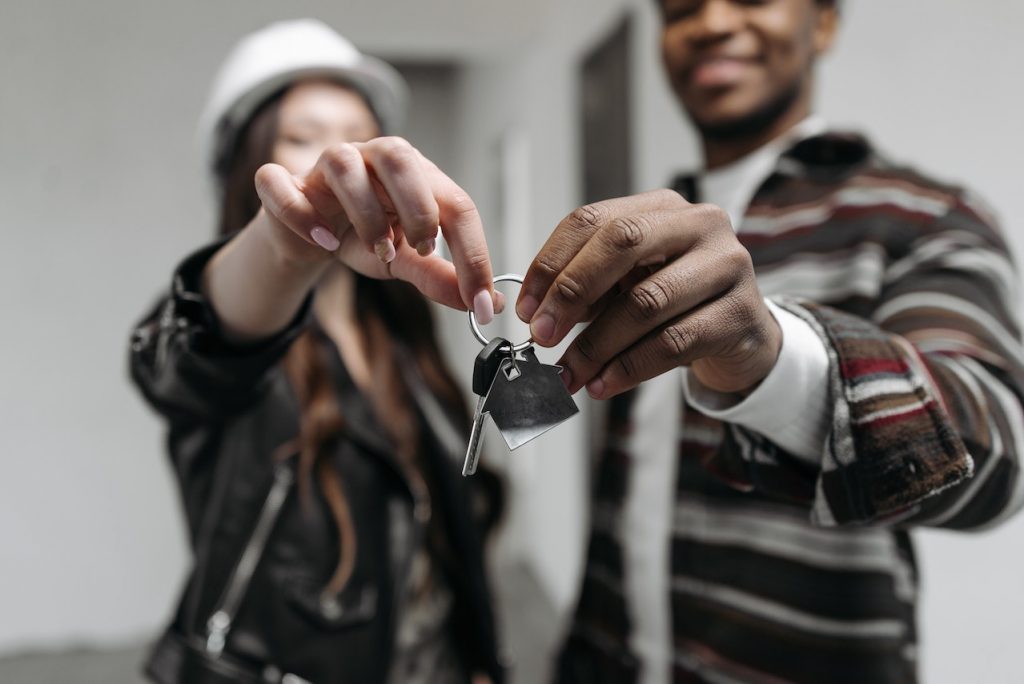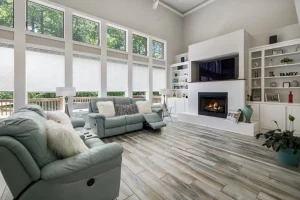The last couple of years has been unpredictable at best. But one thing has remained constant: the rising home prices across Canada. As a homeowner, you may be asking yourself “how much is my house worth?” even if you’re not thinking about selling.
Truth is, keeping track of your home value in Canada is a must if you want to explore further investment opportunities, buy a new house, or simply plan your estate.

There’s a wide collection of factors that impact the estimated market value of a particular house. This includes variables like the local housing market, the number of home sellers available, and the specs of your home. But, the real list is much more comprehensive.
In this article, we’ll share some of the different factors that influence the value of residential properties. We’ll also provide general steps on how to value a house, share tips on increasing your home’s worth, and help you determine if you’re getting a fair market value.
Factors Involved in Your Home’s Value
Before helping you answer the question “how much is my property worth?”, let’s look at some of the factors that impact the value of your real estate property.
In this section, we’ll cover variables that are directly related to the house. Note that some of these are under your direct control. Meaning, you can take steps to improve these areas and boost your home’s worth. We’ll also consider the external factors that you have no control over later on in this piece.
Location
You’ve probably heard this on TV or in person: real estate is all about location, location, and location.
Perhaps, true!
The location is one of the biggest factors when determining the value of your home. After all, the location of a property impacts its school district, the amenities that are immediately available, and commuting times. However, the location of your property may not be under your direct control after you’ve purchased it.
If you’re yet to purchase your next property, it’s crucial to consider how itsl location affects the sale value of your property.
Property Type
Apartments, detached homes, semi-detached homes, condos, and townhouses — all these properties offer unique advantages. Therefore, it makes sense for the property type to impact a home’s overall value.
As a general rule of thumb, property types that offer the most space are the most valuable. For instance, most real estate professionals agree that detached homes have the highest value. However, the type of property impacts other features beyond the space itself.
For example, townhouses and condos are often subject to homeowners associations that may charge maintenance fees. That said, these property types also offer access to communal leisure areas, so the only way to determine the exact property value is to hire professional services.
Size
The size of your real estate property is another crucial factor when determining its value. Now, it’s important to understand that certain areas hold more value than others. Livable areas like bedrooms, for instance, are more valuable than utility rooms like garages.

Note that it’s possible to expand the size of your home under certain circumstances. Property owners may be able to build outwards or add storeys, but this will depend on the property type and the amount of space around it.
Usable Space
Having a spacious home is not the same as having a lot of usable space.
We mentioned liveable spaces in the last section, but it’s important to understand that usable space includes any areas that you can occupy within the confines of your home. This includes garages, attics, and basements. However, it does not include shared building areas like stairwells, storage rooms, building hallways, or recreational areas.
As you can imagine, the most usable space in your home, the higher the value. But, keep in mind that the state of the space will also impact the value of your home. Therefore, it’s best to maintain all areas of your home in good condition.
Age and Overall Condition
The age of your house and its overall condition are two factors that are related, yet independent from each other.
Generally, older homes have more deterioration, older electric systems, and other negative factors. That said, real estate properties from certain decades are known for their good build, which can actually boost your property’s value.
No doubt that the age of a home is crucial, but its condition is also essential when determining its value. When evaluating the condition of a home, buyers usually analyze general maintenance and upkeep rather than extensions and other major improvements.
The condition of your home is directly in your control, but certain elements also impact the state of a house that you don’t have influence over. This includes weather, attached properties, and similar variables.
Renovations and Upgrades
Whether you have purchased an investment property or a family home, it’s normal to make improvements, renovations, and other upgrades.

Quality upgrades increase the value of your real estate, but the renovation area and type both impact this price change. Renovating living spaces and bedrooms represents a bigger investment. However, these improvements are more valuable than bathroom remodels.
What’s My House Worth? Methods for Determining the Value of Your Home
Here, we’ll share our steps on how to find the value of your home.
Keep in mind that each method offers unique advantages and setbacks. If you want to get an accurate appraisal, your best bet is to contact a trustworthy real estate agent that can help you find reliable appraisers and other real estate professionals.
If you want to find out your home’s value on your own, you can go for:
Online Tools
The internet is a great place to buy and sell homes. Therefore,it makes sense to leverage an online home value estimator to help you determine the property value. These are called automated valuation model tools, or simply AVM.
Home value calculator tools take a huge amount of data into consideration when generating an estimation. This includes publicly available data and specific information that homeowners have to provide.
Even though an AVM can give you an idea of your home’s worth, it’s important to note that you won’t get accurate results. If you want to know the exact current value of your property, the best method is to pair this type of valuation with other techniques.
Comparative Market Analysis
Cooperative market analysis or CMAs are evaluations performed by real estate agents. This is another type of preliminary evaluation and should be used as an indicator rather than an accurate estimation.
Only a real estate agent you can trust should perform CMAs. So, research potential agencies before organizing one of these valuations.
The FHFA House Price Index
Suppose you want a quick valuation but something more accurate than AVMs. In that case, you can always refer to the house price index calculator on the Federal Housing Financing Agency’s page. The platform uses decades of data and tracks property value changes to provide estimations to its users.
Note that this platform is not adjusted for inflation and other variables, so it’s also not perfect. Yet, it may help you verify the information received from other estimation models.
Professional Appraisals
The best way to assess your home’s worth is to hire a professional appraiser. These professionals are in charge of analyzing all factors, assessing their influence, and giving homeowners an accurate valuation of their real estate properties.

During their assessments, appraisers consider the state of the home, the local market, and comparable properties, among other variables.
What External Factors Affect Home Value
As mentioned earlier, there’s a set of external factors that impact the value of your home. It’s impossible for a homeowner to influence these factors, but it’s essential to monitor them to make the right property and financial decisions.
Here are other factors that impact the value of your home.
The State of the Neighbourhood
New homeowners pay close attention to the state of a neighbourhood and whether it’s in decline before making an offer for a home.
Mortgage Interest Rates
Mortgage interest rates directly impact buyers’ acquisitional power, and therefore, the amount of money these individuals are willing to pay. When mortgage interest rates are low, as they are currently, buyers are more willing to engage in bidding wars and pay more for a piece of property.
Local Real Estate Market Trends
The local real estate market goes beyond the neighbourhood and it can encompass entire cities and regions.
Public records indicate that home prices are growing across most of Canada, especially in regions like the Greater Toronto Area. The growing popularity of these areas suggests a huge spike in demand, allowing homeowners to place higher price tags on their real estate.
How Often Should I Check My Home’s Value?
Now that you have a clear idea of how to determine house value, it’s time to learn how often you should get an appraisal.
The value of your house impacts your taxes, so you need to perform an appraisal at least every year. If you purchase an investment property, keeping a close eye on the price of your home can help you make better decisions down the line.
There is no limit to the number of valuations you can perform regularly. You should look at the goals you’d like to achieve through your real estate and set a regular schedule for valuations to accomplish these objectives.
What Can I Do to Increase the Value of My House?
Adding value to your home is all about taking ownership of the factors that are under your control.
Performing improvements, making extensions, and maintaining your property in good condition will help you improve its value even more. That said, certain minor renovations can significantly boost the perceived value of your real estate. So make sure to work with an agent that can guide you through the process.
Performing a Valuation Before Putting Your Home on the Market
Organizing a home valuation is the only way to accurately plan your estate and organize your assets. If you’re thinking about selling your home or purchasing a new piece of real estate, our team of professional agents will be glad to help.
Contact Justo today to learn more about selling or buying real estate in your area.
- How to invest in Virtual Real Estate : Exploring Metaverse - May 10, 2024
- Renovations for Resale: Top Upgrades That Increase Home Value - April 30, 2024
- Decoding Real Estate Listings: A Guide to Understanding the Jargon - April 22, 2024




